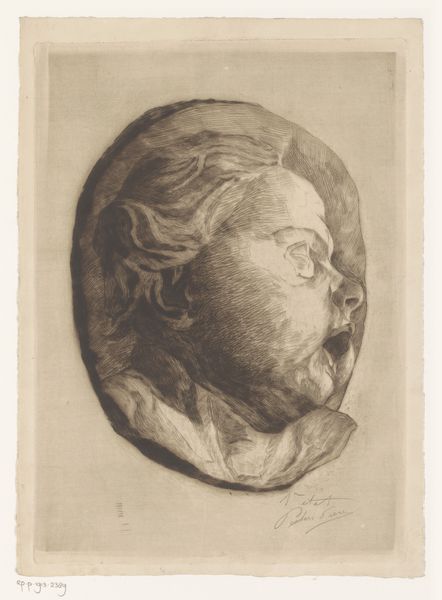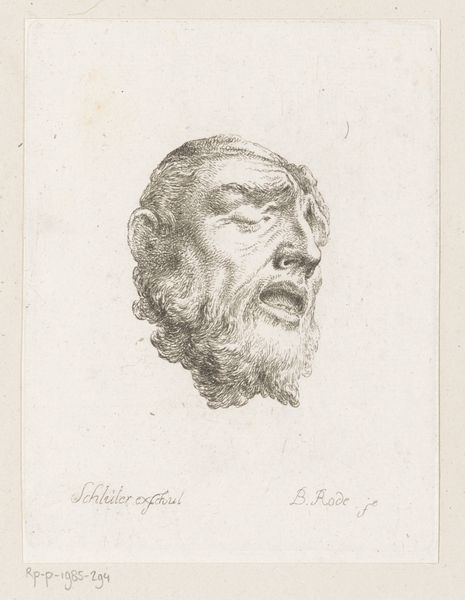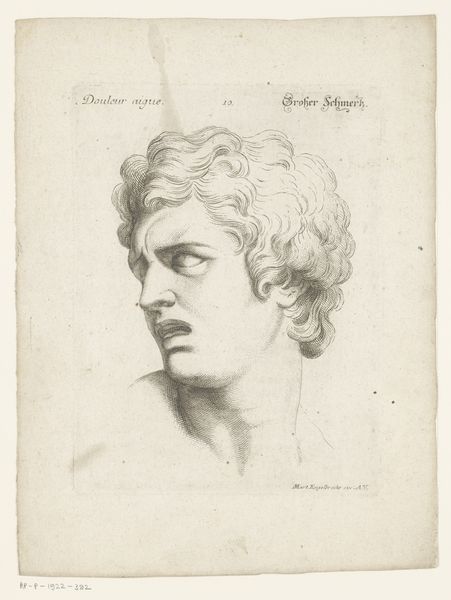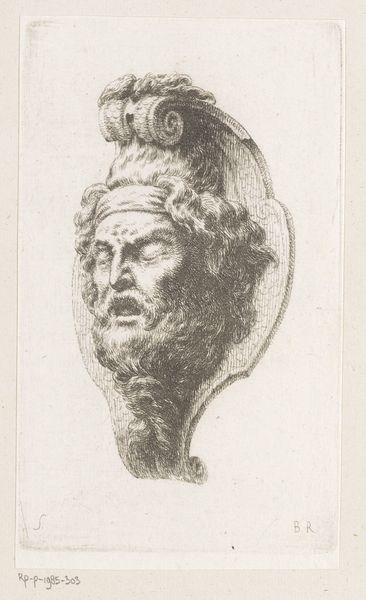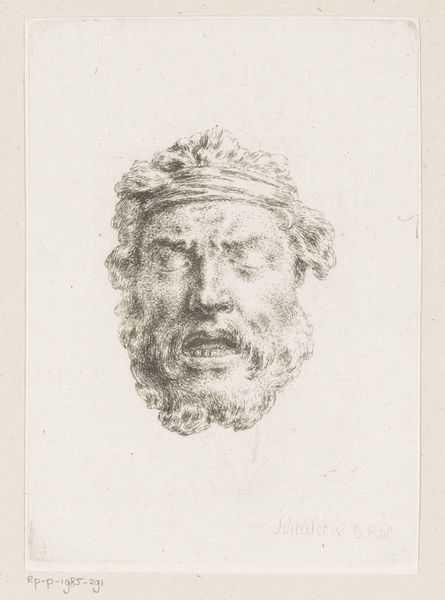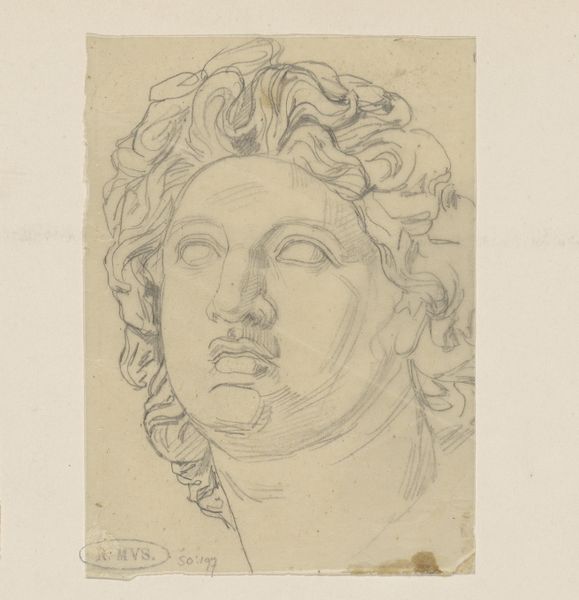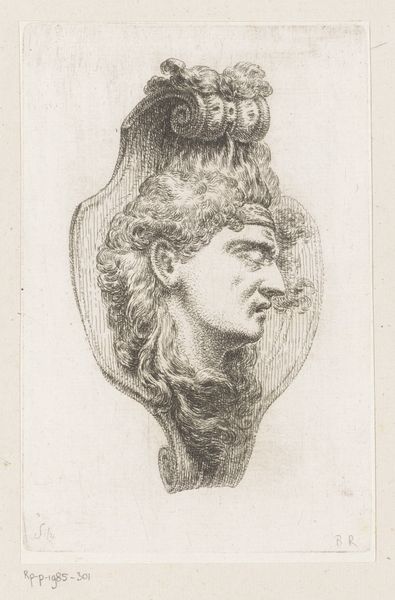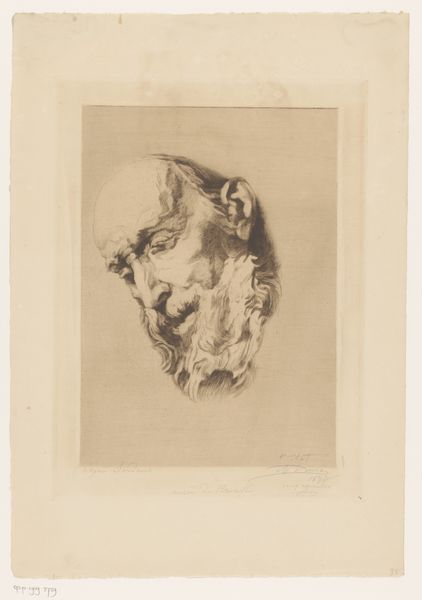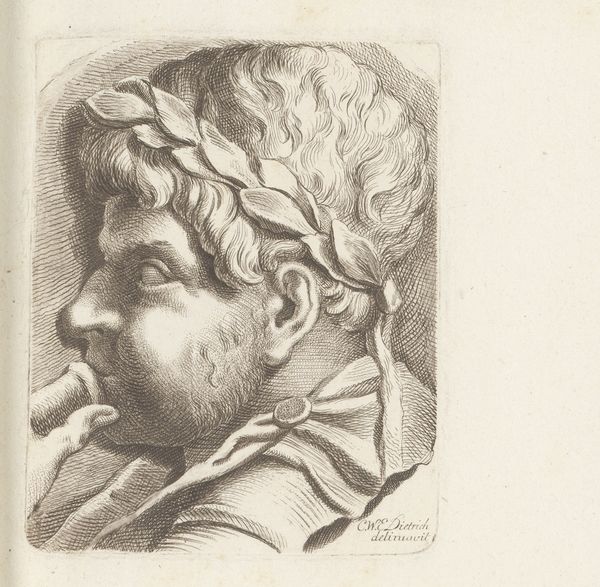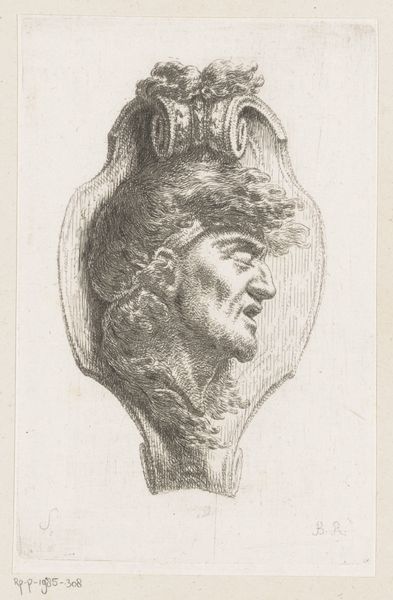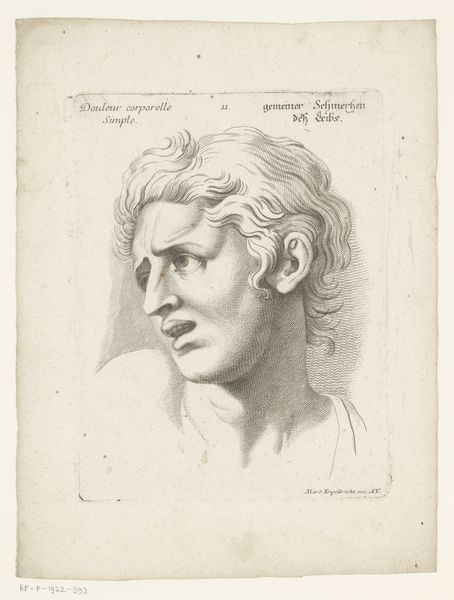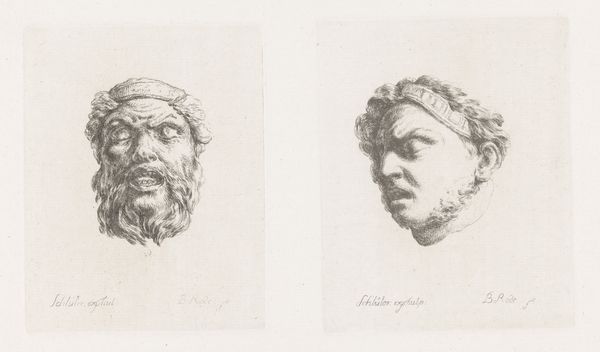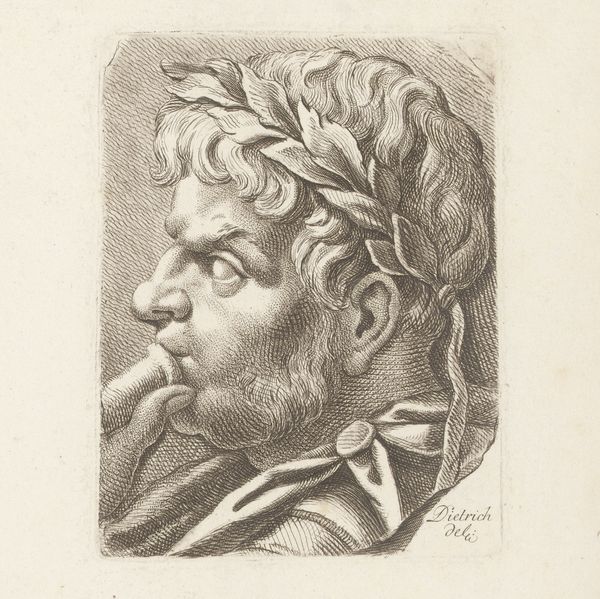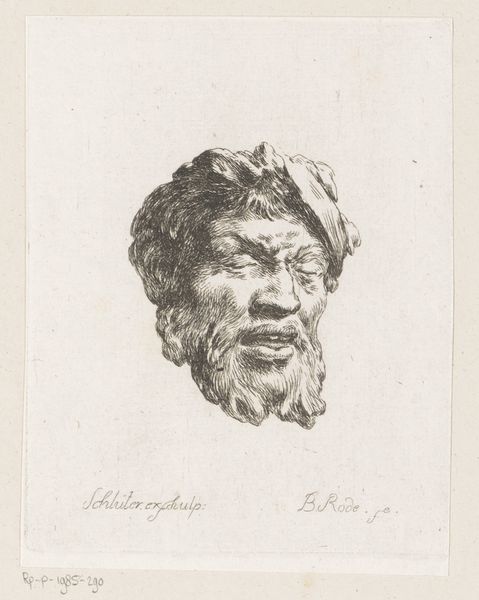
print, engraving
#
portrait
#
baroque
# print
#
old engraving style
#
history-painting
#
engraving
Dimensions: height 147 mm, width 118 mm
Copyright: Rijks Museum: Open Domain
Editor: This is Christian Bernhard Rode’s "Man’s Head with Closed Eyes," an engraving from 1759. It's currently held at the Rijksmuseum. The first thing I notice is the dramatic tension in the face; it looks like he's experiencing something intense internally. What do you see in this image? Curator: Indeed. It resonates with the symbolic language of its time. Consider the closed eyes. While they might suggest sleep or peace to modern eyes, in the 18th century, particularly within the visual rhetoric of the Baroque, closed eyes often symbolized introspection, a withdrawal from the temporal world to commune with a higher power or truth. He almost appears to be undergoing some sort of ecstatic revelation, don't you think? Editor: That's a very interesting perspective. I was focusing more on what I thought was anguish in the brow and mouth. So, you're seeing a connection to a kind of spiritual contemplation instead? Curator: The furrowed brow certainly complicates a purely peaceful reading, doesn’t it? It creates tension. Perhaps this is not the serenity of realized faith, but the struggle of *seeking* it, or perhaps even doubt itself. Rode captures that precarious balance, which speaks volumes about the psychological complexity valued during the Enlightenment. Look closely at the headband – what significance might *that* hold, within the symbolic register of the piece? Editor: I hadn’t even considered the headband! I guess I was seeing it just as part of the overall classical aesthetic of the figure. Is it maybe indicative of his status or role in society? Curator: Precisely! It anchors the image in a specific cultural and historical milieu, evoking images of philosophers and stoics from antiquity, reborn through the lens of 18th century intellectualism. It asks us to reflect upon our place in a much longer chain of thought. Editor: This has really opened my eyes to the layers of meaning embedded in what I initially saw as simply a portrait of a man experiencing some kind of distress. Curator: And that's the power of visual symbols – their capacity to carry echoes of the past into the present.
Comments
No comments
Be the first to comment and join the conversation on the ultimate creative platform.
